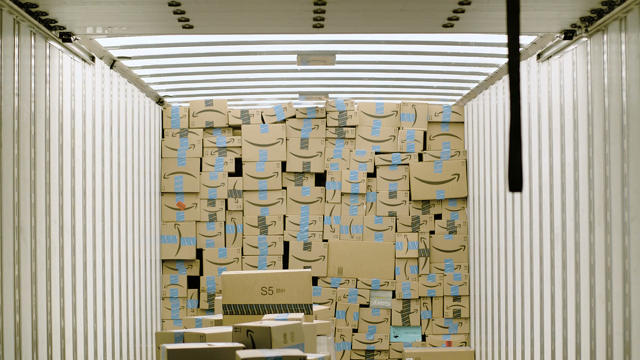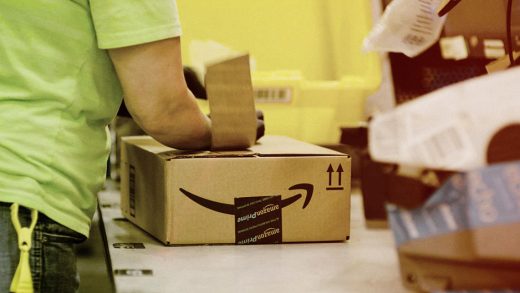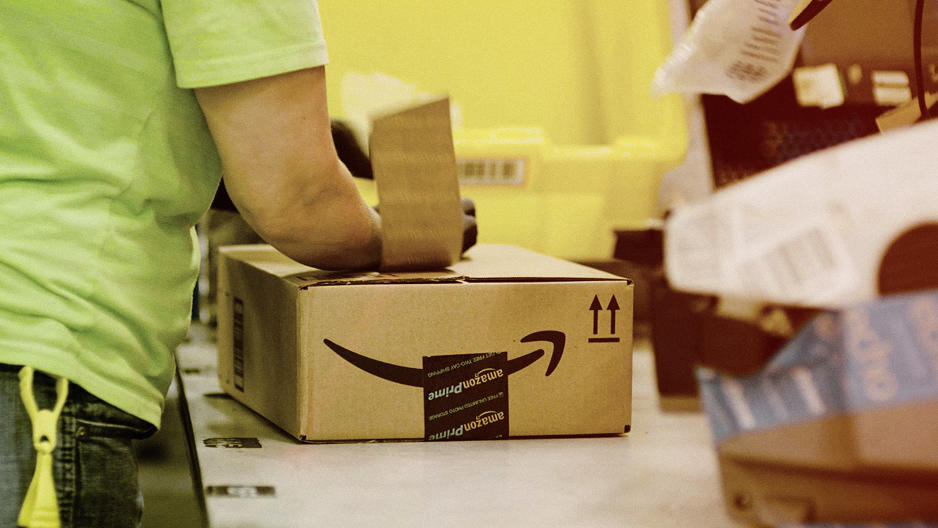The Uneasy Truth Behind Amazon’s Hiring Blitz And What Startups Are Doing To Fix It
Today, Amazon announced that it will create 100,000 full-time, full-benefit jobs in the United States over the next 18 months. The jobs, Amazon says, will range from entry-level positions to software development roles.
The announcement is designed to play nicely into President-elect Trump’s rhetoric about bringing more jobs back to our shores, but it’s important to remember that Amazon’s business model is premised on increasing automation wherever possible, which means replacing more and more humans with machines.
In other words, while job creation is a reason to celebrate, it’s worth being skeptical about the amount of job-creating Amazon will do in the long run. Even as it has increased its staff from 56,200 in 2011 to 306,800 last year, it has also outfitted its warehouses with robots and conveyor belts that have reduced the human labor required to ship a package to one minute. Its drone program might soon make mail delivery people obsolete. And it is reducing the need for customer service agents with policies like proactive refunds.
And more broadly, Amazon has played an important role in cutting jobs throughout the retail supply chain. It conditioned consumers to be able to find any product online and have it shipped to our home within days, which has had far-reaching ramifications across the marketplace. This week, women’s fashion brand The Limited was the latest brand to shutter all 250 of its stores, effectively becoming an online-only retailer. Sears closed 200 stores over the last fiscal year and has 150 more closures scheduled for 2017. It joins, Macy’s, Sports Authority, Ralph Lauren, Office Depot, American Apparel, and Aeropostale, which all closed stores over the last year.
“Malls are becoming ghost towns,” says Joel Levitin, a partner at law firm Cahill Gordon & Reindel, who specializes in bankruptcy and restructuring. “Part of this definitely has to do with automation and how we’ve gotten so used to buying things online.”

A New Way Of Thinking Local
While many retail jobs lost to automation are unlikely to return, there are reasons to be encouraged by a growing movement within the startup community to bring more manufacturing to the United States. Over the last couple of years, a flock of startups—American Giant, Mizzen+Main, Shinola, the Reformation, Buck Mason, and Yogasmoga, to name a few—have begun to think harder about how to make products locally, not just because it will create jobs, but because they actually believe they can make better-quality goods here. While the output of these startups is relatively small compared to a leviathan like Amazon, it signals a shift in business strategy and consumer demand that has the potential to become more widespread.
American Giant’s founder and CEO, Bayard Winthrop, says he’s passionate about making his apparel line in the U.S. from end-to-end, because that allows him to ensure that he can give his customers the best hoodies and T-shirts in the world. This doesn’t mean Winthrop is against automation: He’s been working hard to find or engineer the best possible machines to keep his factories as efficient as possible, so that he is able to offer products at prices that keep pace with brands that manufacture more cheaply overseas. But his approach means he’s generating hundreds of American jobs. His company is contributing to the slow, but steady increase in U.S.-based apparel manufacturing, which has gone up by 35% since 2009.
“The focus needs to be on fostering competitiveness,” Winthrop explains in an email. “Old retail is suffocating … trying to figure out how to survive rather than how to innovate. The bright spot in manufacturing apparel is going to be led by a new generation of businesses.”
Among this new generation of businesses is luxury eyewear startup State Optical, which manufactures entirely at a 50-person factory in Chicago. It takes two weeks and 75 steps to make a single pair of glasses, which retail at $350 and above—on par with most higher-end eyeglasses on the market. Cofounder and CEO Scott Shapiro launched the business two years ago with the belief that the American market is ready for more brands that emphasize quality and craftsmanship over low cost.
The lesson here is that the American marketplace has changed. Some proportion of retail and warehouse jobs are gone forever, eaten by the internet and automation. But the way to bring more jobs back home is twofold. First, introduce technology and innovative thinking into the entire supply chain process, to make it possible to produce products locally at competitive prices. And second, appeal to consumers’ desire for products that are made with attention to detail and high-quality workmanship, something that American factories can do better than their overseas counterparts.
Fast Company , Read Full Story
(38)



